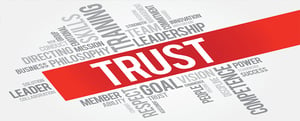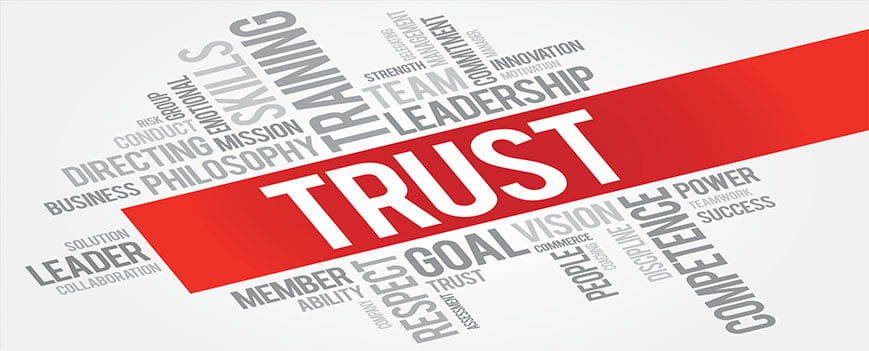


One of the most foundational qualities a manager must have is trust. Trust in their team and their team’s trust in them as a manager. Without trust, team members spend unproductive time second guessing motives in a highly political and toxic environment. Executive leaders must monitor the behavior of middle management and go beyond what they’re being told by direct reports in order to uncover the underlying issues driving the dysfunctional corporate culture.
8 Pillars of Trust
According to David Horsager, author of The Trust Edge, “trust is quantifiable and brings dramatic results to businesses and leaders.” He covers 8 pillars of trust:
Trust is a competitive advantage in today’s workplace since every aspect of business becomes more profitable. According to SAM Advanced Management Journal, 2008, “The link between employees’ trust in leadership and firm performance is quite clear; as trust increases, firm performance rises.”
Case Study:
A new manager is hired to lead an existing team. He is new to the organization and is thrown into a highly political environment. His first six months are spent getting to know the various silos and players involved. After gaining trust of those he manages, he manipulates the situation by selectively communicating information to his team that furthers his status and position in the company while downplaying or omitting any mention of subordinate team members’ contributions. The priorities he sets for the team members support what he needs to further his professional development.
The above example is one of many ways that today’s managers violate multiple pillars needed to build trust in an organization. Team members are dependent on their manager for their career development and when the very basic value of trust is absent, an unhealthy and toxic environment develops.
How to Rebuild Trust in a Broken Corporate Culture
To rebuild trust in a corporate environment, drastic measures are required. If existing leadership refuses to acknowledge the situation, leadership changes are needed. It needs to be clear that the middle managers who blindly followed the ineffective leader are now accountable for leading according to the new pillars required to rebuild trust.
Follow David Horsager’s Ten Step Process for Instituting Lasting Change which incorporate each of the 8 pillars mentioned above:
Develop Trustworthy Leaders
The Bob Pike Group has helped 95% of Fortune 100 companies with measurable training and performance solutions. There are several training options to choose from:
Register now for the Coaching for Success Workshop August 23-24 in Minneapolis.
Don't miss out on updates and chances
to sharpen your skills with participant-centered learning.




3740 N Chestnut St #113 - Chaska, MN 55318-3053